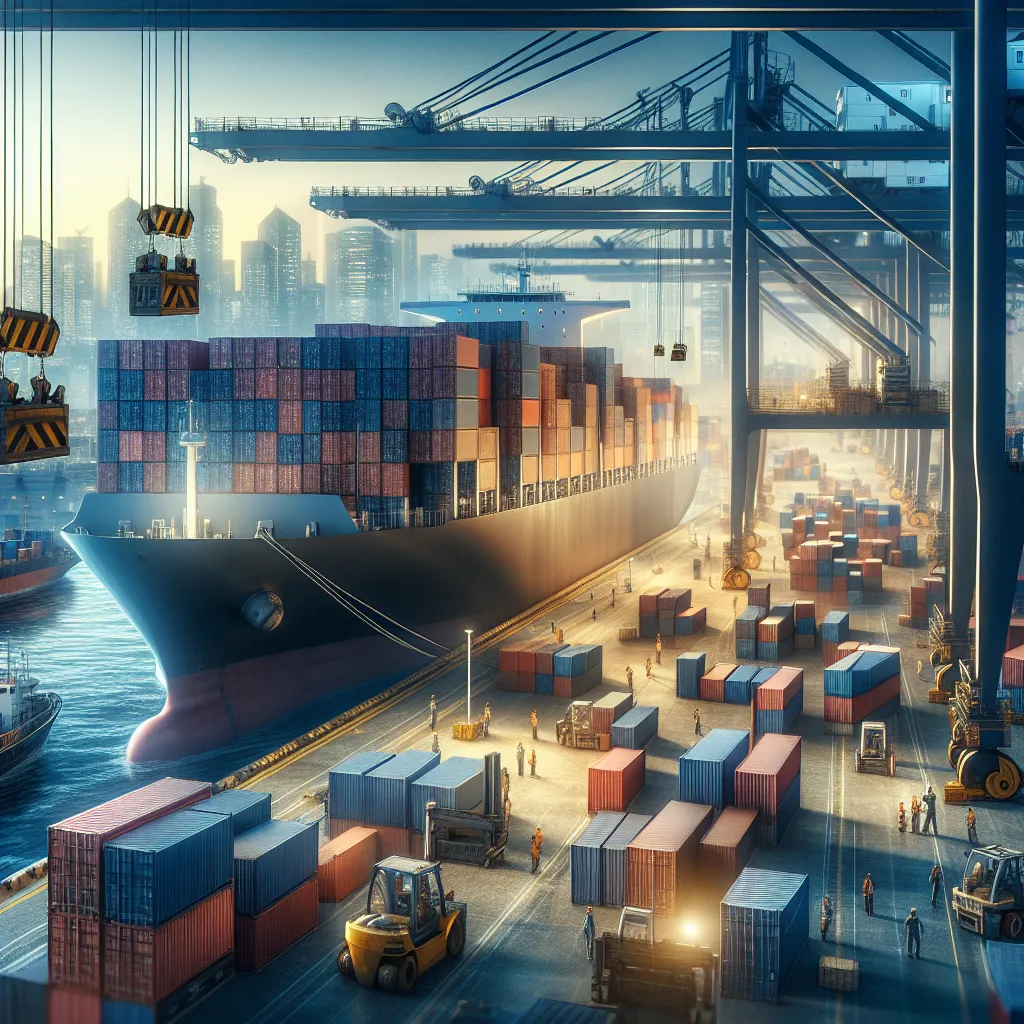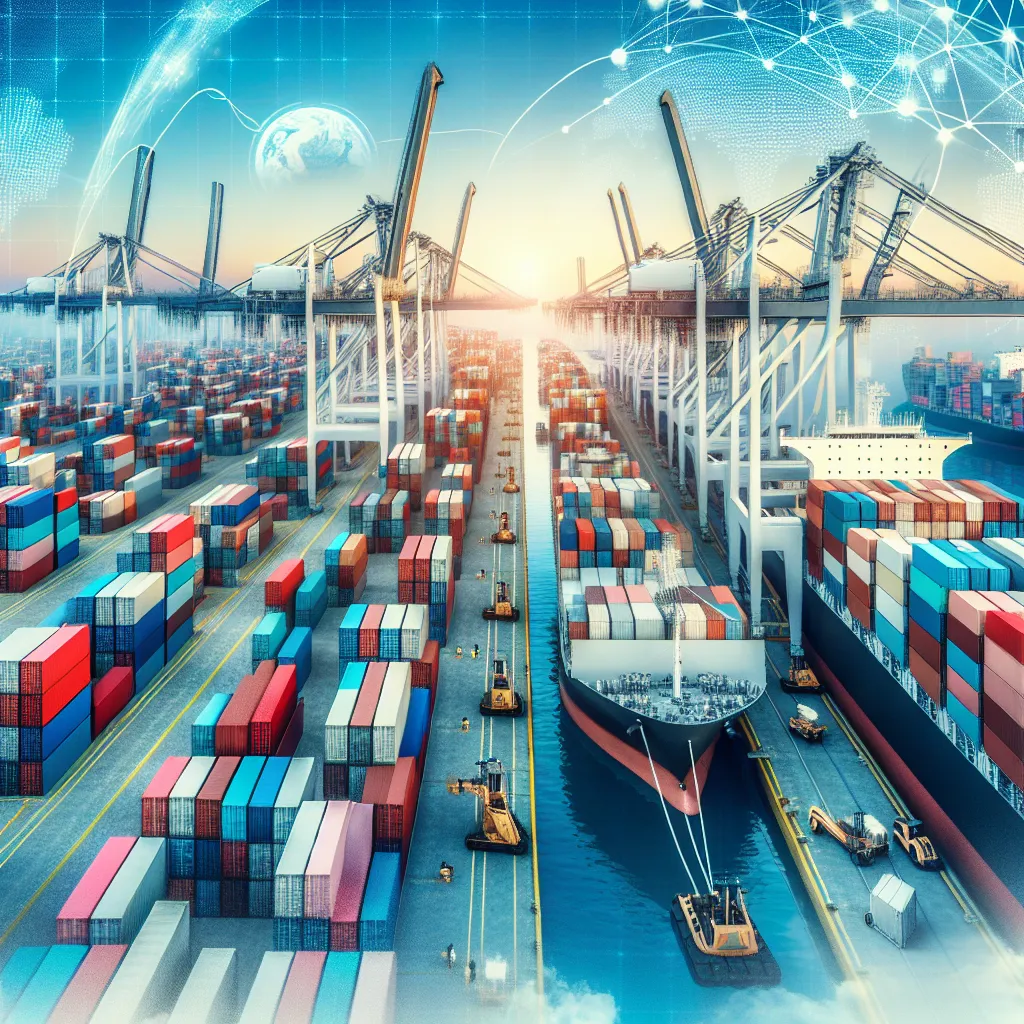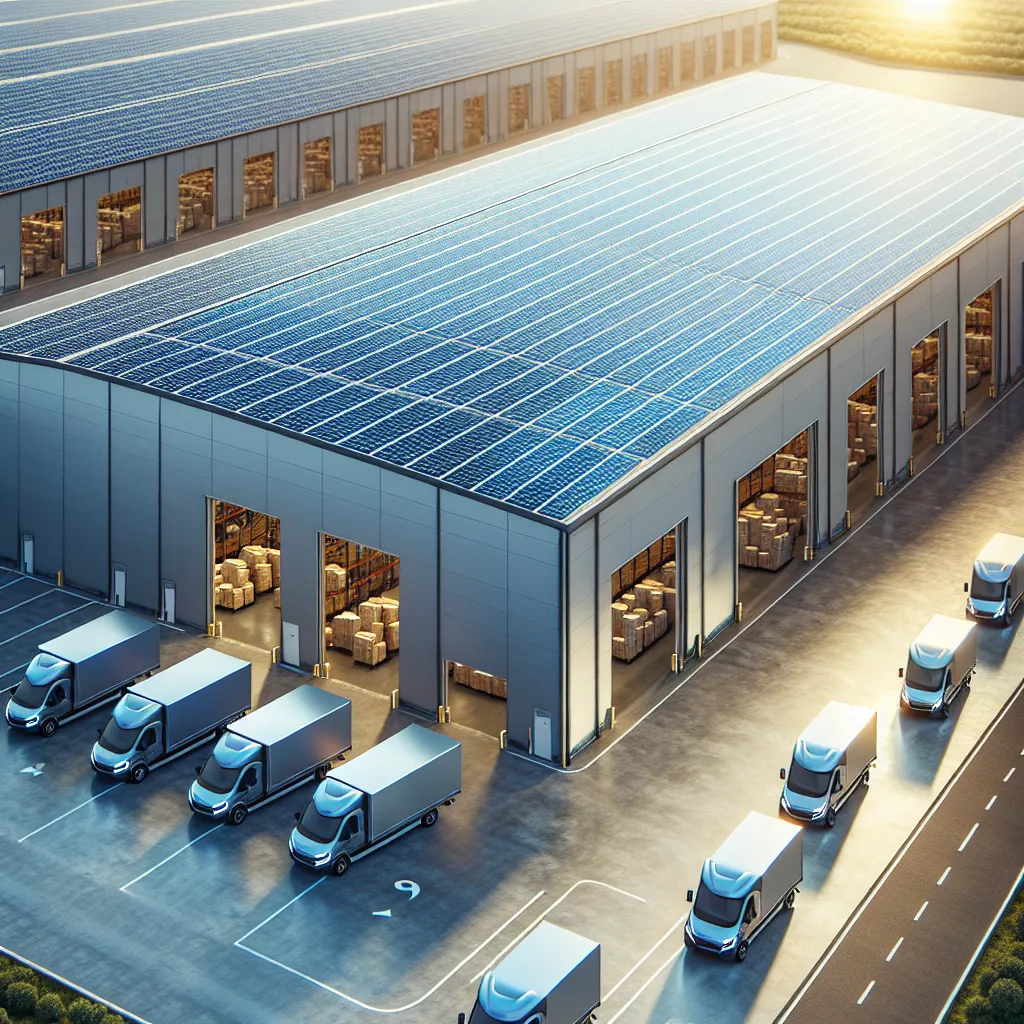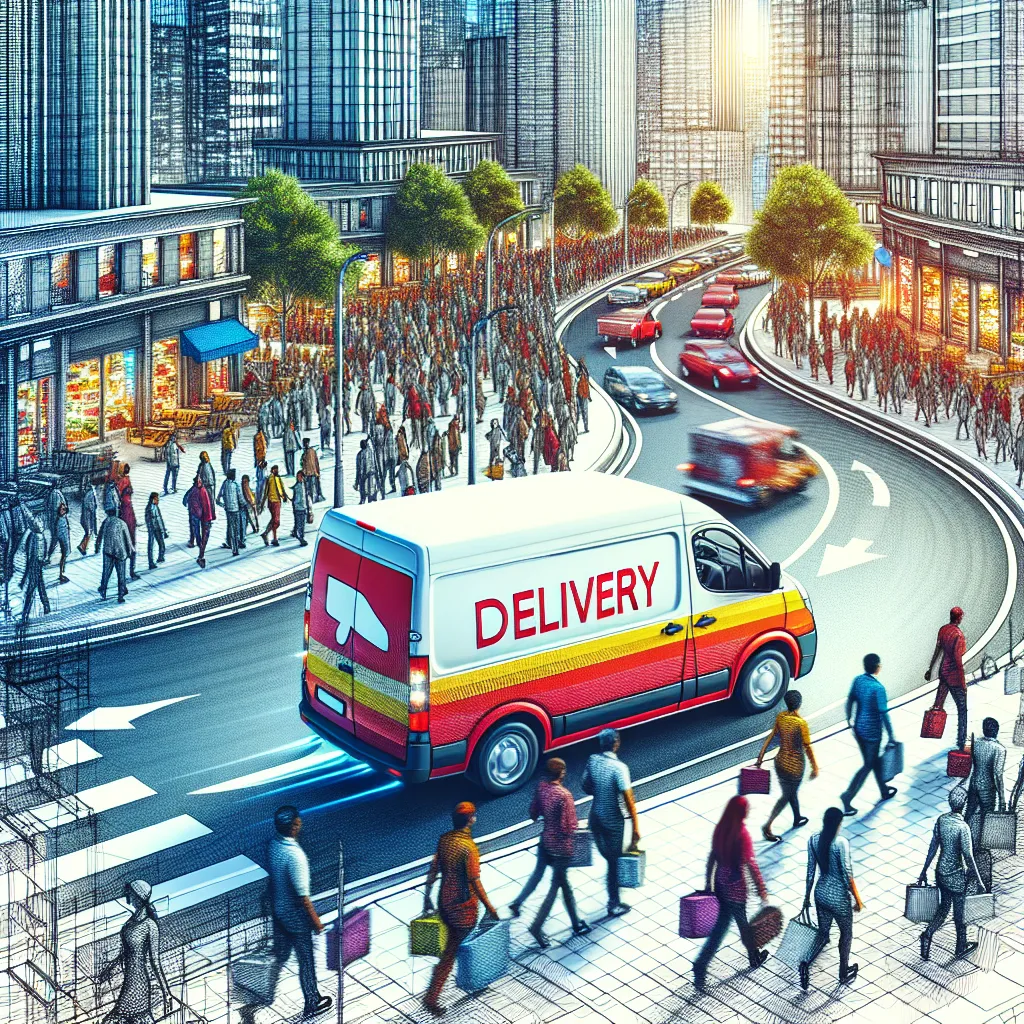The delivery industry is currently undergoing a significant shift due to the increasing demand for same-day delivery services, driven by consumers’ desire for quick and convenient delivery options in the thriving e-commerce market. This trend presents both challenges and opportunities for businesses, as they must meet heightened customer expectations while also benefiting from the potential differentiation and enhanced customer satisfaction that fast and reliable delivery options can bring. To capitalize on this demand, companies need to adapt to the changing landscape by investing in advanced logistics systems, leveraging data analytics, and exploring innovative partnerships and technologies. Furthermore, innovations in last-mile delivery technology, such as autonomous vehicles, advanced route optimization software, and smart lockers, offer promising solutions to meet the growing demand for efficient last-mile delivery while reducing environmental impact. These developments highlight the need for businesses to embrace innovation and address evolving customer needs to succeed in a market prioritizing speed and efficiency.
Category: Logistics Services
Logistics services encompass a wide range of activities aimed at the effective management and movement of goods and resources. These services are integral to the supply chain process and include transportation, warehousing, inventory management, and distribution. Logistics services play a crucial role in ensuring the smooth flow of products from suppliers to customers, optimizing efficiency, and minimizing costs. From freight forwarding to order fulfillment, companies offering logistics services help businesses streamline their operations and meet the demands of a global market, ultimately contributing to improved customer satisfaction and competitive advantage.
In addition to the physical aspects of transportation and storage, logistics services also encompass important administrative functions such as documentation, customs clearance, and regulatory compliance. These services are essential for coordinating the complex network of international trade and ensuring that goods are delivered safely and in accordance with legal requirements. Good logistics services providers excel at leveraging technology and data analytics to track and monitor shipments, optimize routes, and provide real-time visibility into the supply chain. By offering comprehensive logistics solutions, these providers enable businesses to focus on their core competencies while meeting the evolving challenges of today’s dynamic marketplace.

Sustainability Practices in Logistics: Reducing Environmental Impact
The article “Implementing Green Supply Chain Initiatives in Logistics Operations” emphasizes the significance of integrating sustainable practices in logistics to reduce the environmental impact. It discusses strategies such as optimizing transportation routes, using fuel-efficient vehicles, and collaborating with environmentally responsible suppliers. The adoption of alternative transportation modes and technology solutions is highlighted as essential for minimizing emissions and enhancing operational efficiency. Additionally, “Strategies for Sustainable Transportation and Packaging in the Logistics Industry” explores the optimization of transport routes, use of eco-friendly packaging, and embracing multimodal transportation to further reduce the environmental impact of logistics operations. Overall, both articles underscore the importance of embracing green supply chain initiatives and sustainable transportation strategies, positioning companies as environmentally conscious and contributing to a more sustainable future for the logistics industry. Read the full articles for valuable insights on implementing green initiatives and sustainable practices in logistics operations.

The Rise of Delivery Services: Changing Consumer Behavior
The article discusses the significant rise in delivery service utilization, marking a notable shift in consumer habits, particularly in food, groceries, and retail products. With the convenience and efficiency of delivery services, there has been a redefinition of the traditional shopping experience, prompting businesses to expand their delivery capabilities. This transformation has been further accelerated by the global pandemic, influencing consumer expectations regarding speed and accessibility. Moreover, the article highlights that delivery services have reshaped consumer behavior, fostering a preference for seamless and expedient solutions, ultimately urging businesses to adapt to this evolving landscape and prioritize the delivery experience to remain competitive in the modern market. If you want to understand how delivery services are reshaping consumer behavior and the imperative for businesses to adapt to this evolving landscape, this article provides a comprehensive insight into these trends and their impacts.

Understanding the Importance of Forwarding in International Trade
The articles highlight the vital role of forwarding agents and freight forwarders in facilitating international trade through their expertise in managing logistics, documentation, customs clearance, and risk mitigation. By acting as intermediaries and leveraging their networks, these professionals ensure efficient and secure transportation of goods across borders while minimizing costs and transit times. Their comprehensive services encompass not only physical transportation but also warehouse management and technological solutions to streamline the entire supply chain process. The articles emphasize how businesses can benefit from partnering with forwarding agents and freight forwarders to expand their global reach, enhance competitiveness, and achieve seamless logistics in the international market.

The Role of Forwarding in Modern Supply Chain Management
The article highlights the crucial role of forwarding services in today’s supply chain management, emphasizing their contribution to the efficient and reliable flow of goods. It stresses the significance of forwarding services in optimizing the supply chain through cost-effective transportation methods and timely deliveries, ultimately enhancing customer satisfaction. The article also underscores the instrumental role of forwarding services in managing international trade complexities, customs regulations, and supporting Just-In-Time inventory management. Additionally, it offers insights into strategies for successful forwarding in the modern supply chain, including the implementation of advanced technology, fostering strong partnerships, and embracing sustainable practices. The comprehensive coverage of the article makes it an essential read for professionals seeking a deeper understanding of the pivotal role of forwarding services in modern supply chain management.

The Impact of Forwarding on Global Supply Chains
The article delves into the transformative impact of forwarding services on global supply chains, emphasizing their role in driving efficiency, integration, and digitalization within logistics and shipping. It highlights how forwarding companies optimize transportation routes, facilitate multimodal transportation integration, and drive digital transformation to enhance visibility and transparency in supply chain operations. The article underscores the pivotal role of forwarding services in reshaping global supply chains and emphasizes their potential to further optimize the movement of goods across the world. Readers will gain insights into how forwarding plays a crucial role in streamlining the movement of goods, reducing transit times, minimizing environmental impact, and ensuring compliance with import/export regulations, highlighting the value of forwarders in enhancing the overall efficiency of global supply chains.

Sustainability in Logistics Services: Balancing Cost and Environmental Responsibility
The article emphasizes the increasing importance of sustainability in logistics services and outlines the strategies and innovations driving this shift. It highlights the need for businesses to balance cost-efficiency with environmental responsibility, emphasizing the benefits of implementing sustainable practices such as efficient route planning, alternative fuel vehicles, and eco-friendly packaging. The integration of advanced technology, data analytics, and the concept of collaborative logistics are identified as pivotal in driving sustainable logistics practices. The article effectively conveys that embracing sustainability not only benefits the environment but also enhances brand reputation and can lead to long-term cost savings. Readers are encouraged to explore the full article to gain a comprehensive understanding of the critical role sustainability plays in the logistics industry.

Sustainability in Courier Operations: Reducing Environmental Impact
The article covers three key aspects of sustainable practices in courier operations: implementing electric delivery vehicles, minimizing packaging waste, and the role of renewable energy in reducing carbon emissions. It highlights the benefits of transitioning to electric vehicles, such as lower carbon emissions and operating costs, and discusses strategies for reducing packaging waste, including right-sized packaging, reusable options, and eco-friendly materials. Additionally, it emphasizes the importance of integrating renewable energy, such as solar and wind power, into courier operations to mitigate carbon emissions and combat climate change. Overall, the article provides valuable insights into sustainable practices essential for courier companies, making it a compelling read for those interested in environmentally friendly logistics solutions.

Sustainability Practices in Courier Companies
The article “Implementing Sustainable Delivery Solutions: A Case Study of Courier Companies” delves into the increasing focus of courier companies on sustainable practices to minimize their environmental impact. It highlights various initiatives, such as the adoption of electric or hybrid vehicles, route optimization software, and the use of alternative packaging materials, showcasing proactive measures being taken. Moreover, the article “The Role of Technology in Promoting Eco-Friendly Logistics in Courier Services” underscores the significant role of technology in driving sustainability within the courier industry. It emphasizes the utilization of advanced technologies like route optimization software, electric vehicles, and real-time tracking systems to enhance efficiency, reduce energy consumption, and minimize emissions. Overall, these articles offer a comprehensive insight into the innovative strategies and technologies employed by courier companies to promote eco-friendly logistics and advance sustainable delivery solutions.

Effective Strategies for Improving Last-Mile Delivery in Logistics
The increasing demand for last-mile delivery services has brought about sustainability challenges for businesses, prompting logistics companies to implement effective strategies. The adoption of electric and hybrid vehicles, as well as electric bikes and delivery drones, helps to reduce carbon emissions and minimize the environmental impact, especially in urban areas. Additionally, optimizing delivery routes, leveraging route planning technologies, and implementing real-time tracking systems can contribute to sustainable last-mile delivery practices, leading to greater operational efficiency and reduced environmental impact. Collaboration and partnerships within the logistics industry play a crucial role in promoting sustainable last-mile delivery, enabling companies to optimize delivery processes and reduce energy consumption. Embracing electric vehicles, optimizing delivery routes, and fostering industry collaboration are essential for improving last-mile delivery while mitigating environmental impact, ultimately contributing to a more sustainable and eco-friendly future. Moreover, technological innovations, such as route optimization software, real-time tracking, delivery drones, autonomous vehicles, and smart delivery lockers, offer diverse tools and solutions that reshape last-mile logistics, providing efficient and sustainable delivery options for businesses and customers alike.

